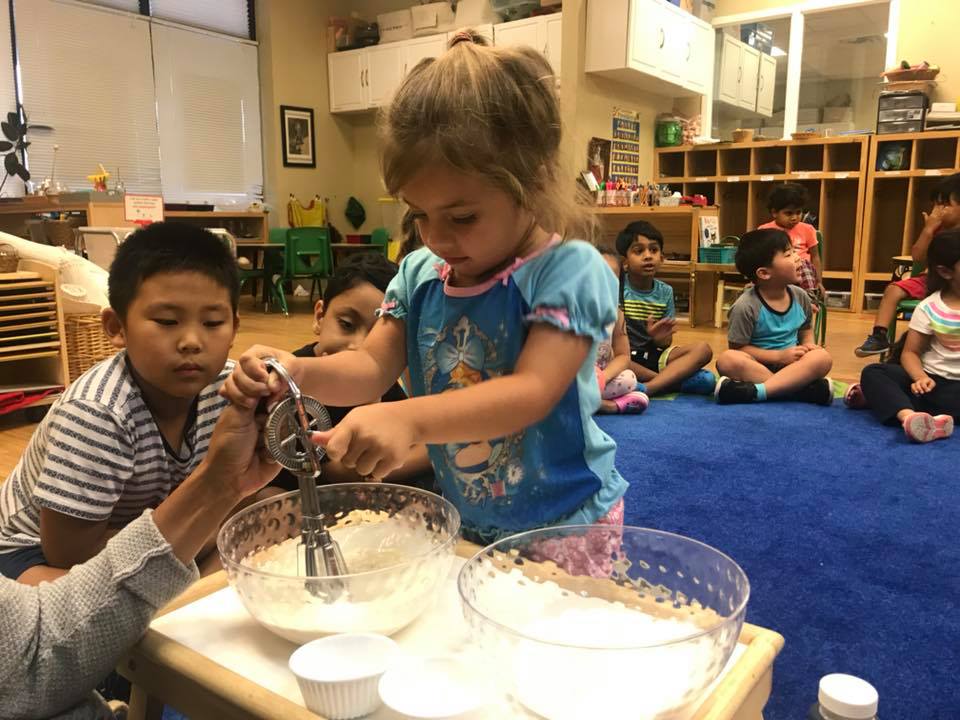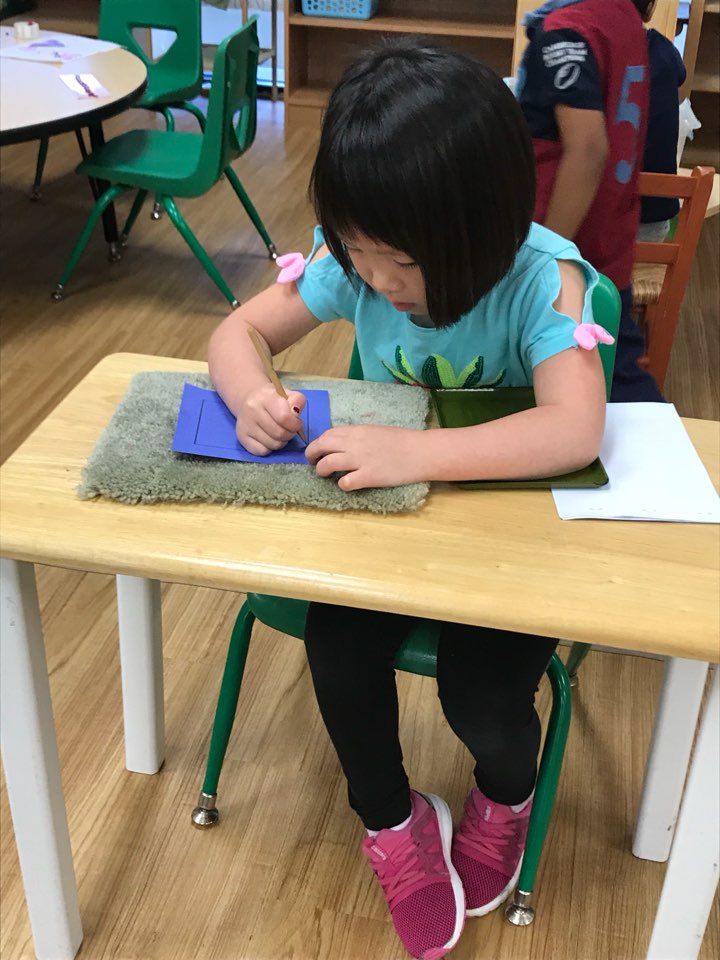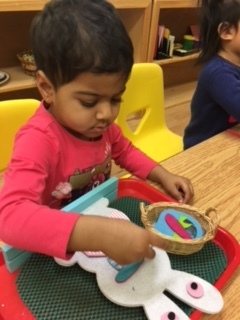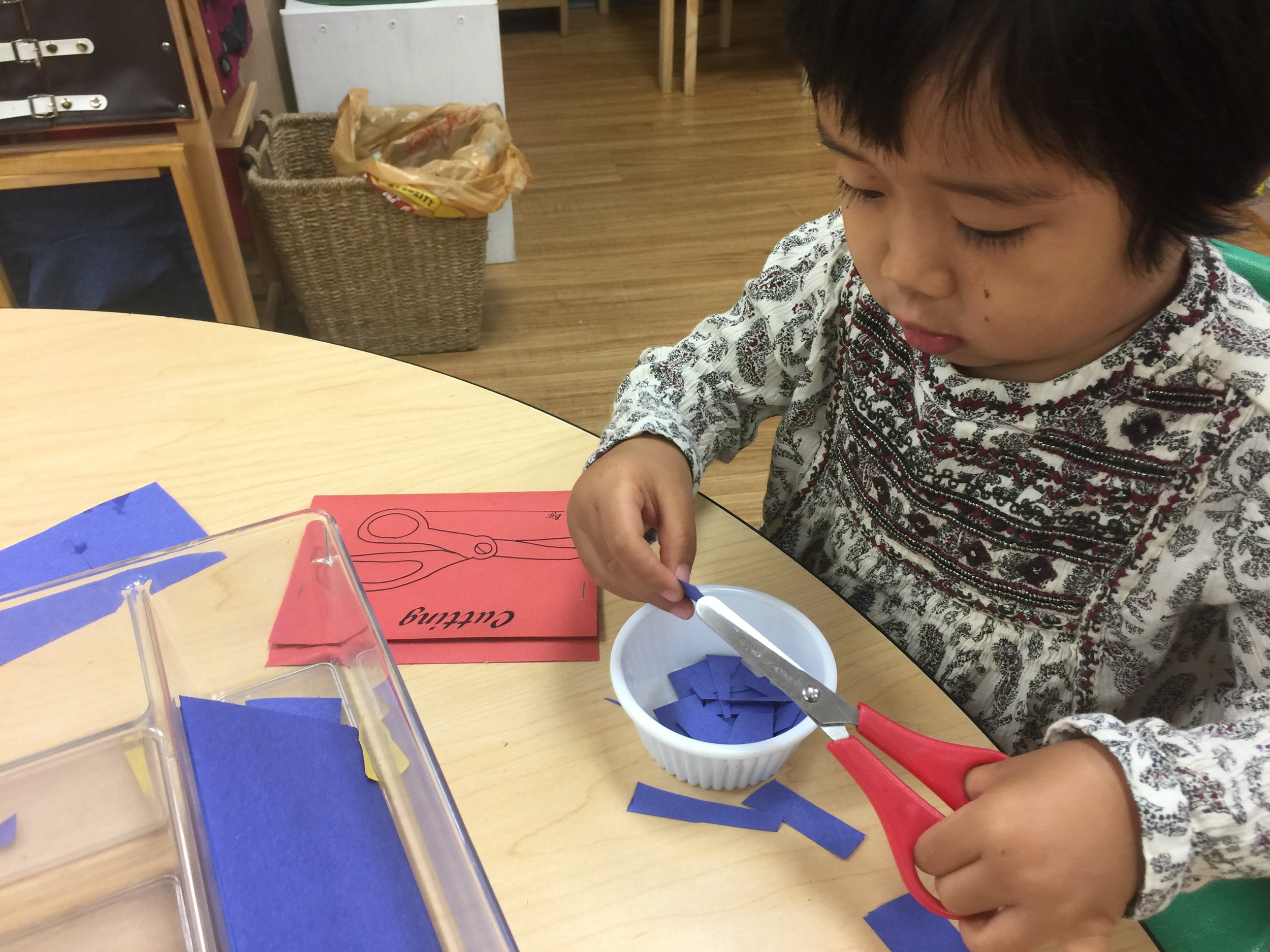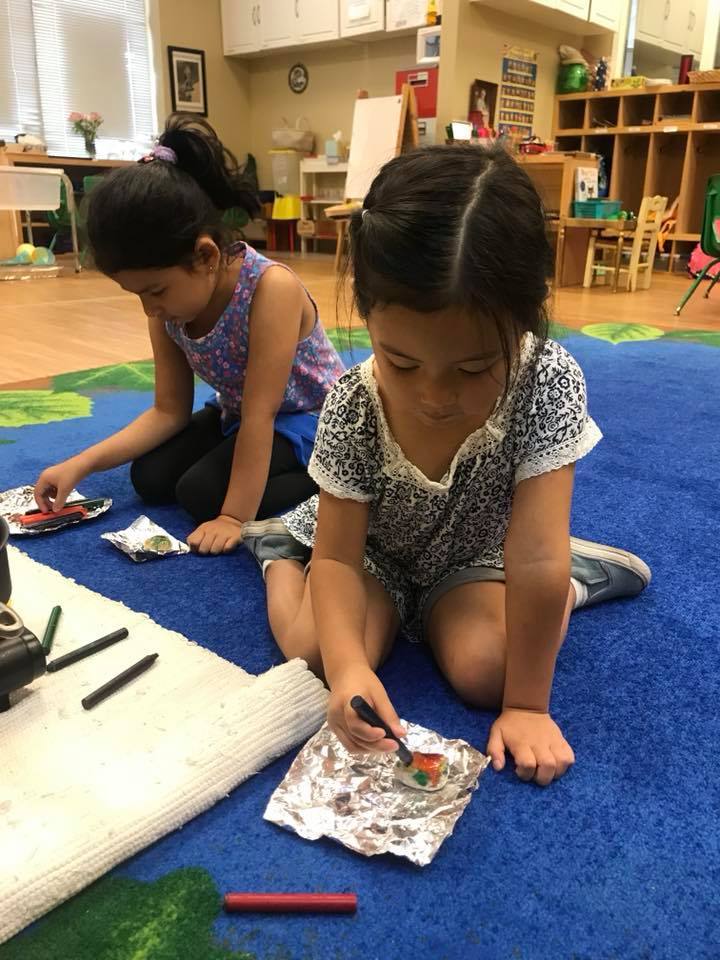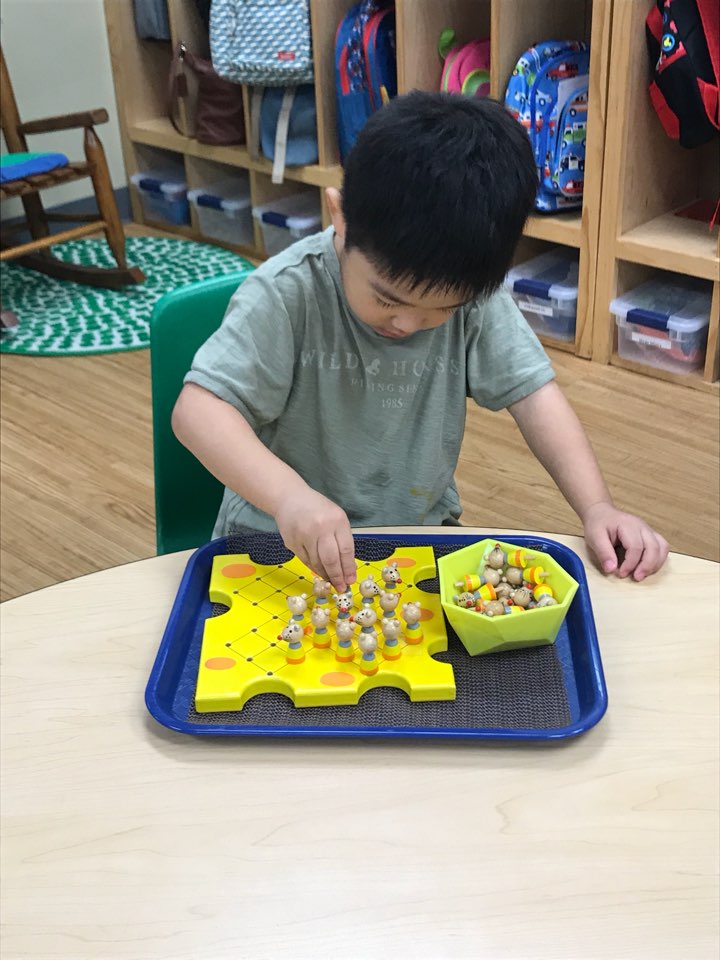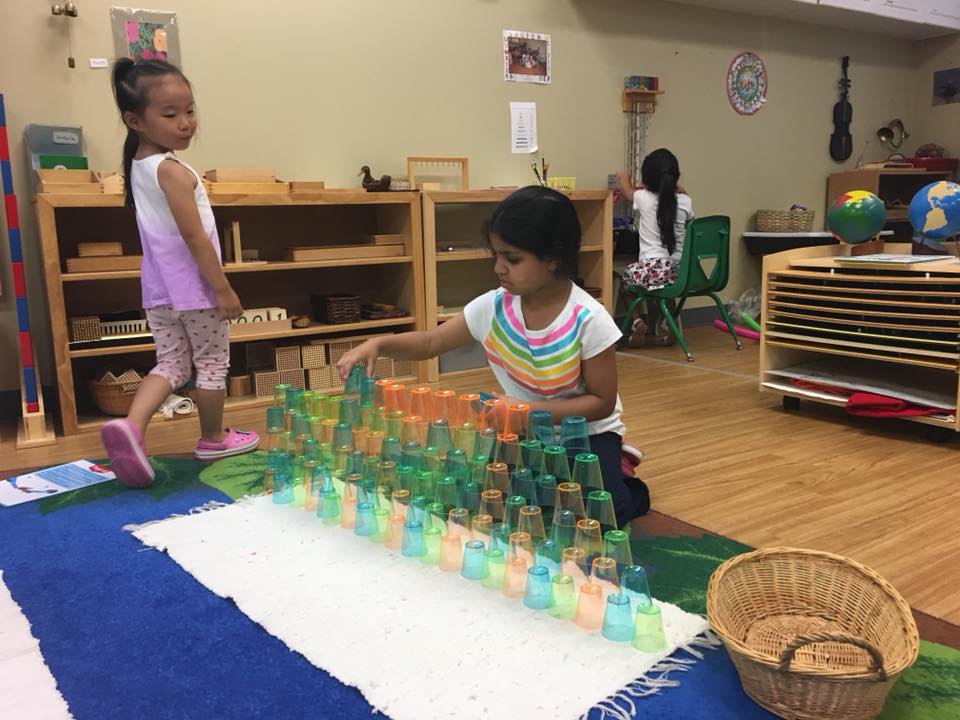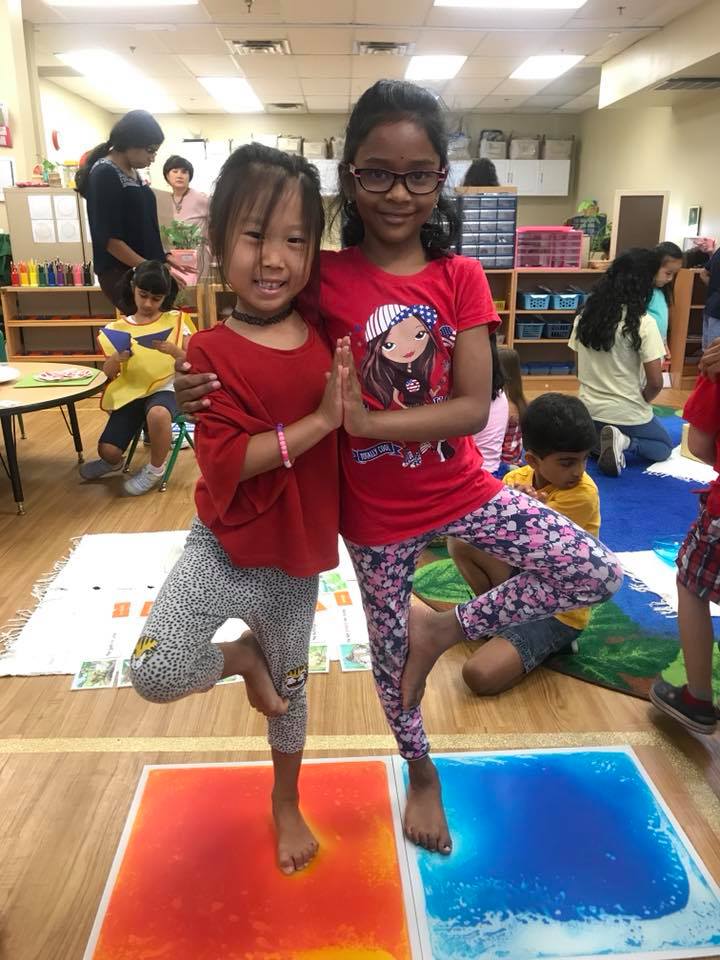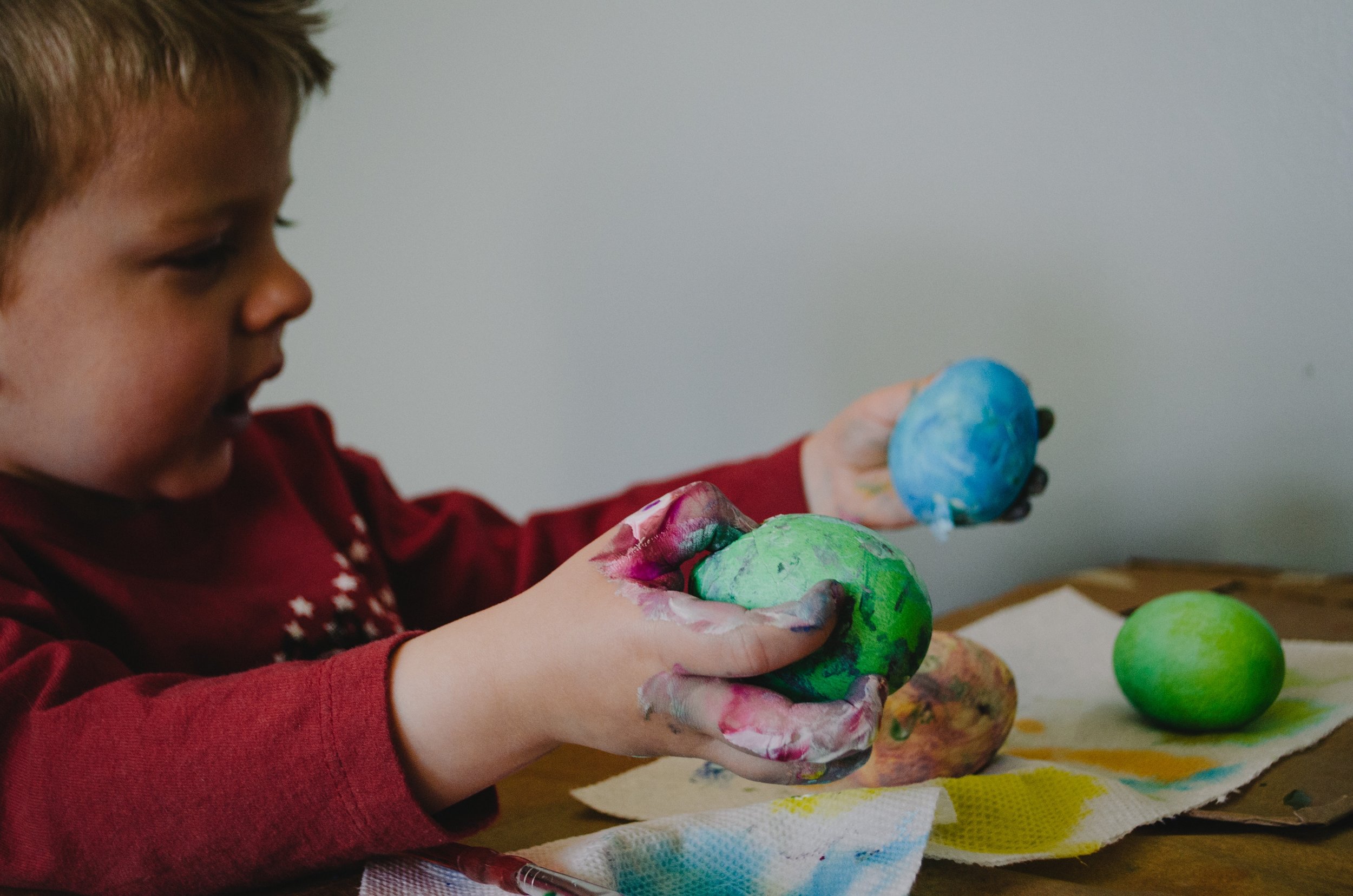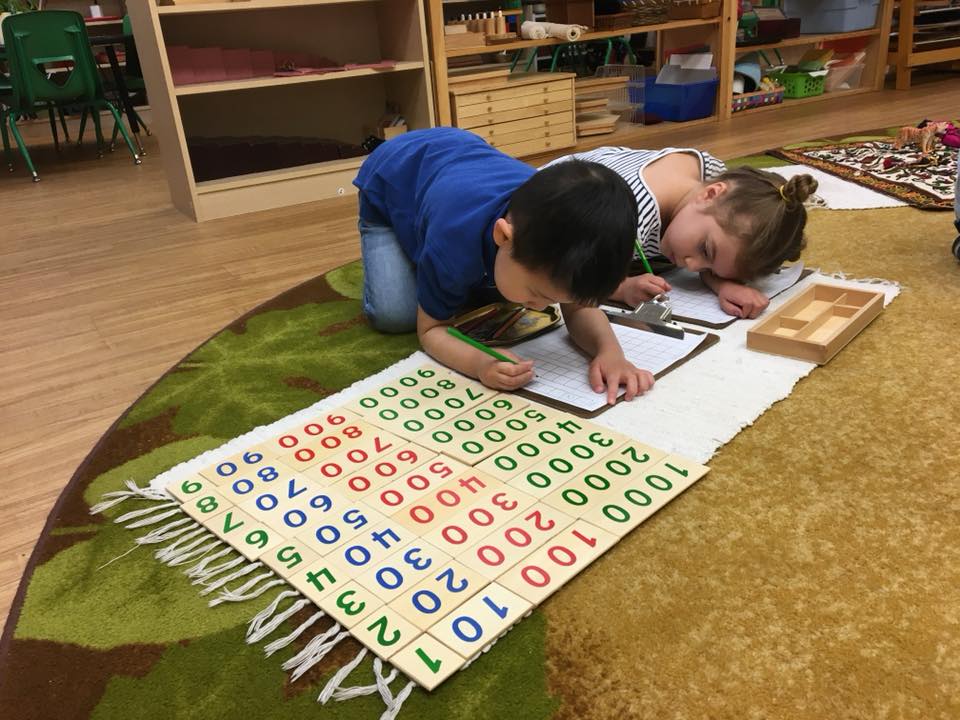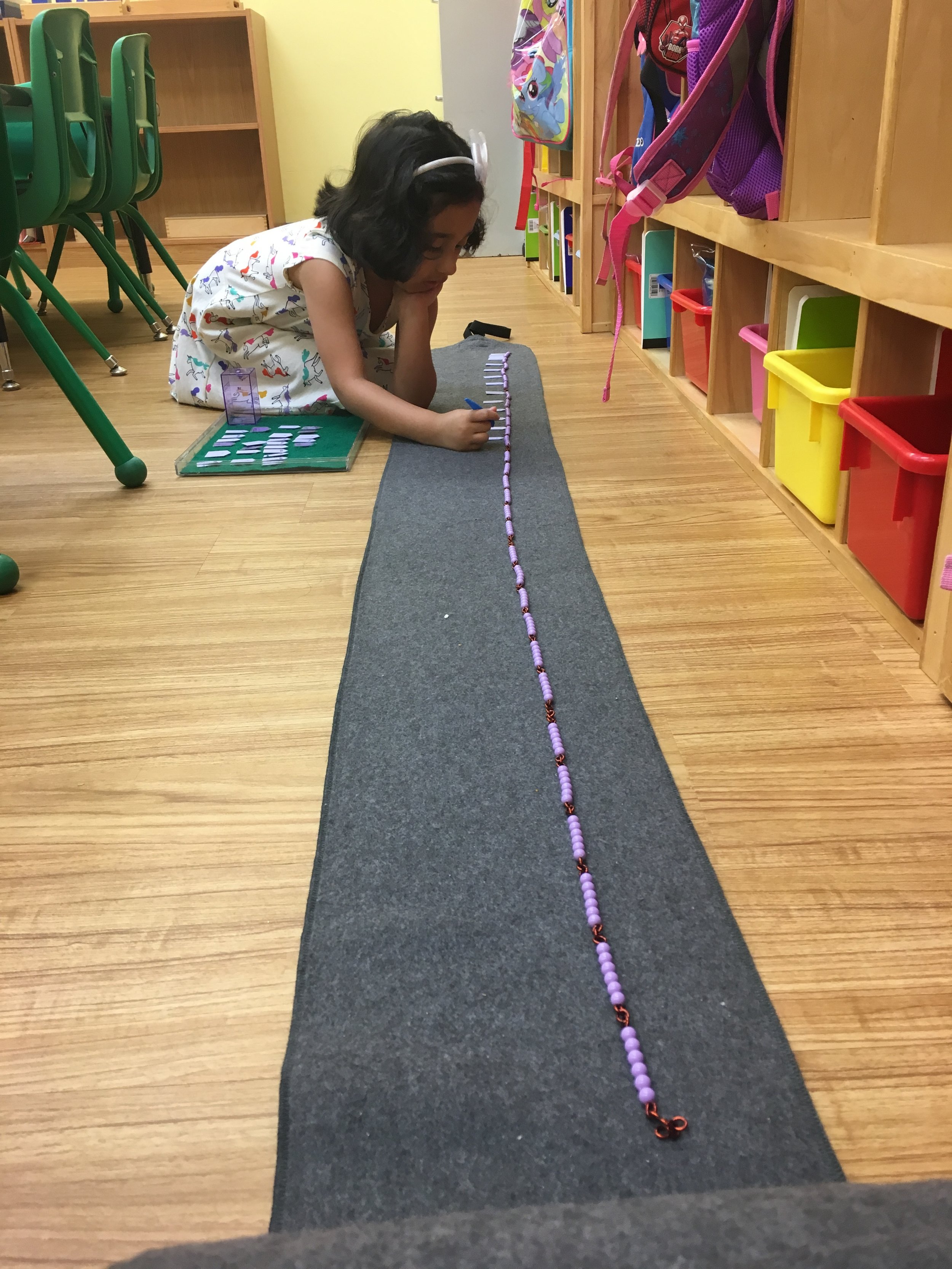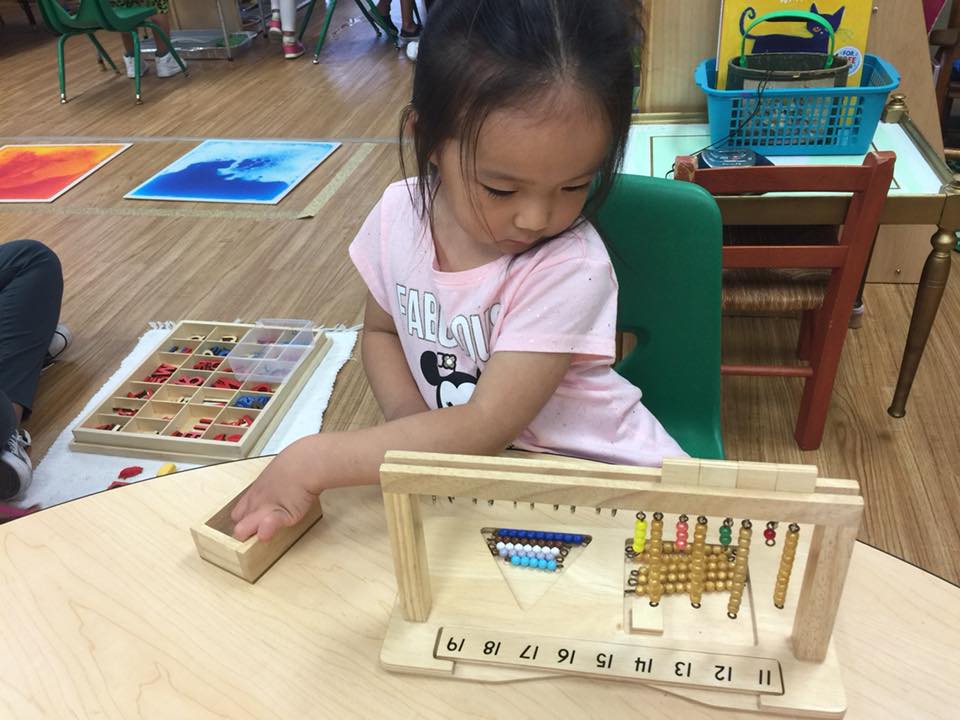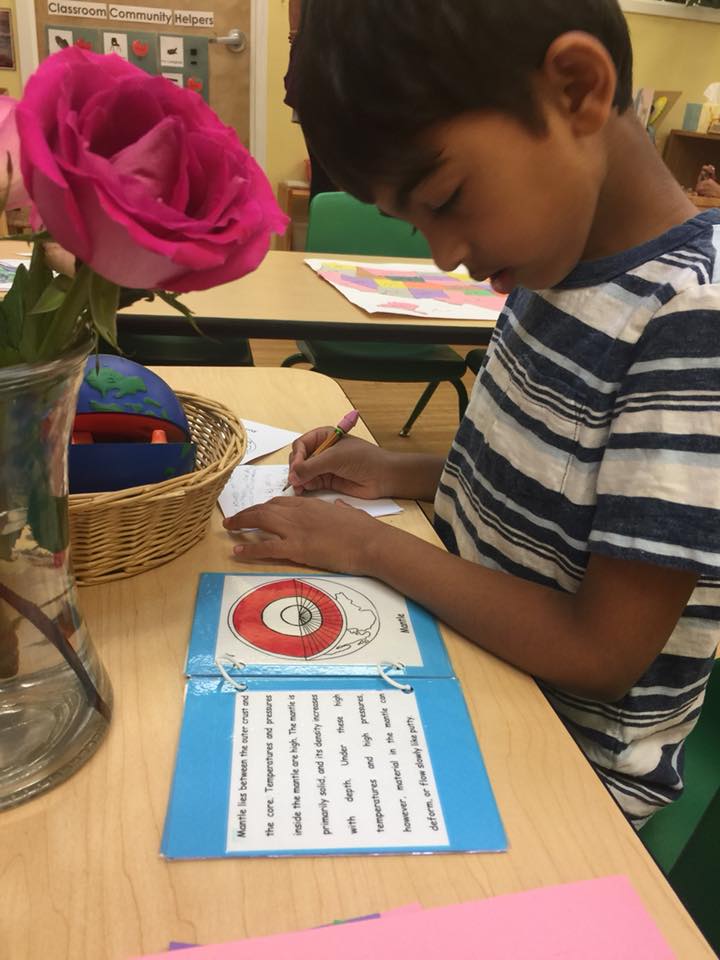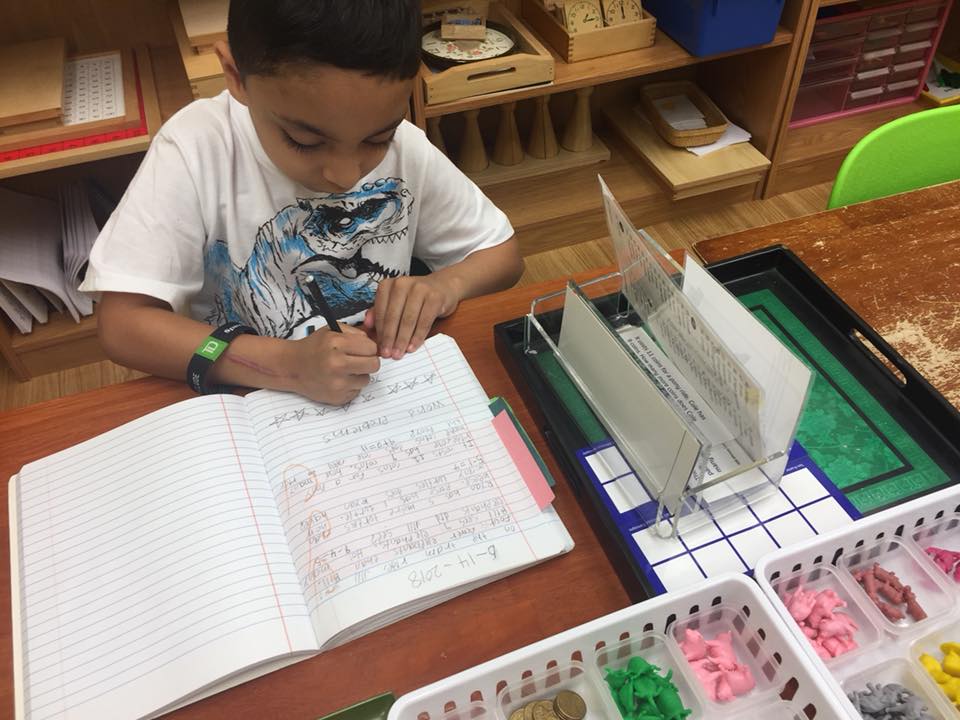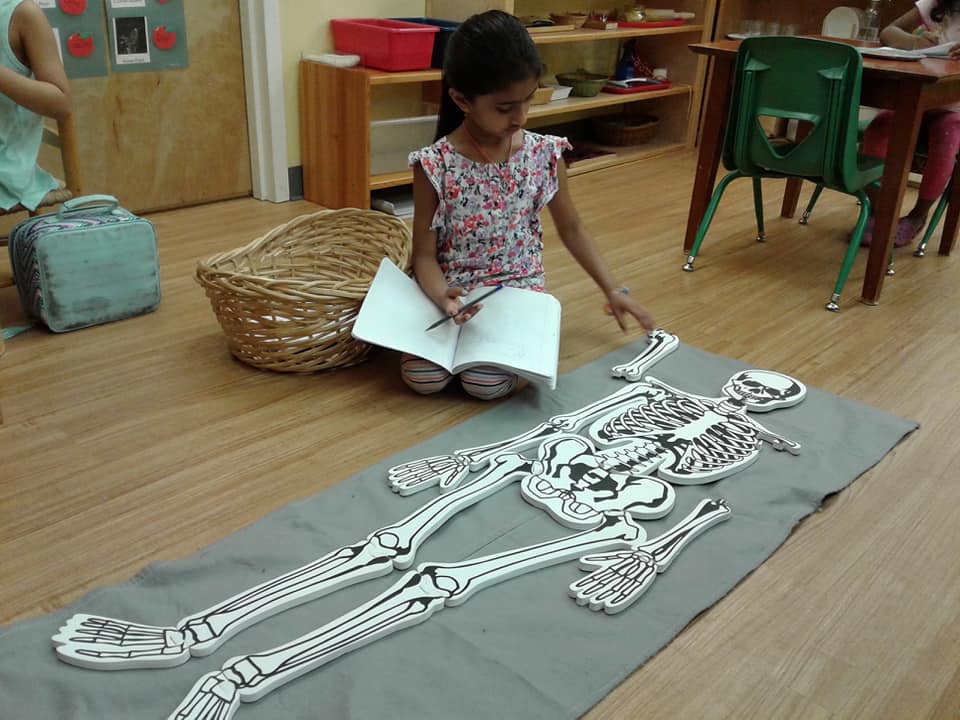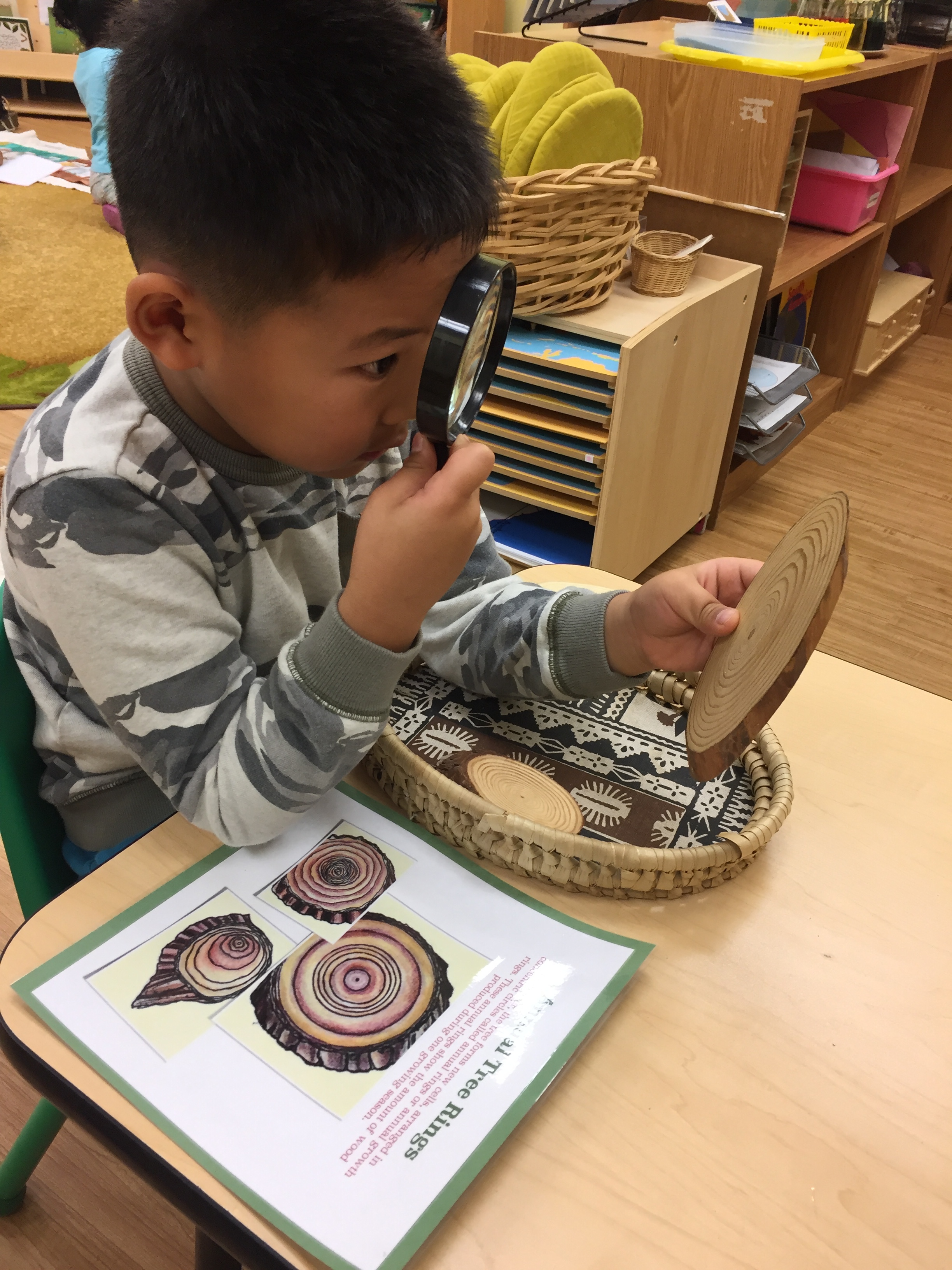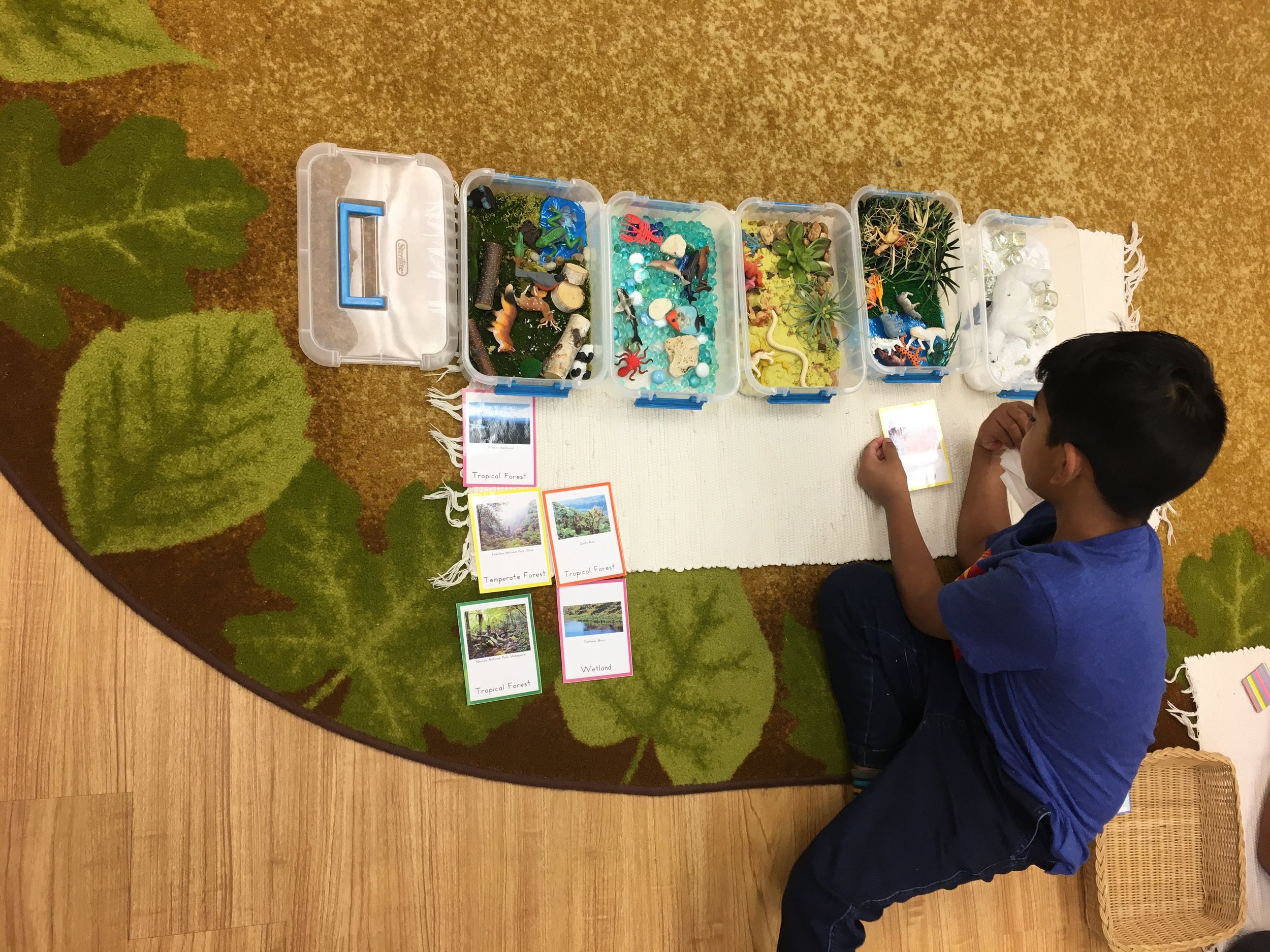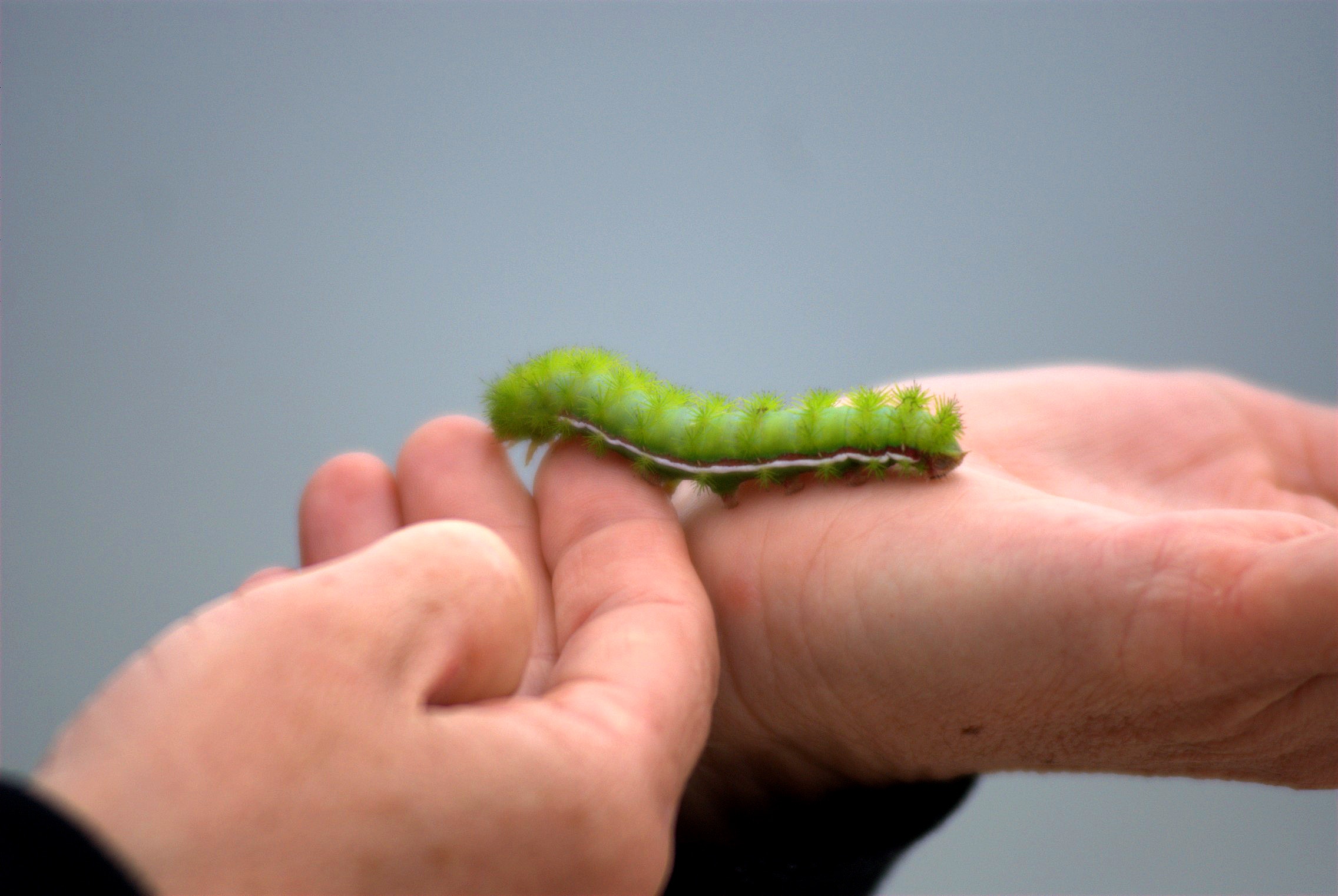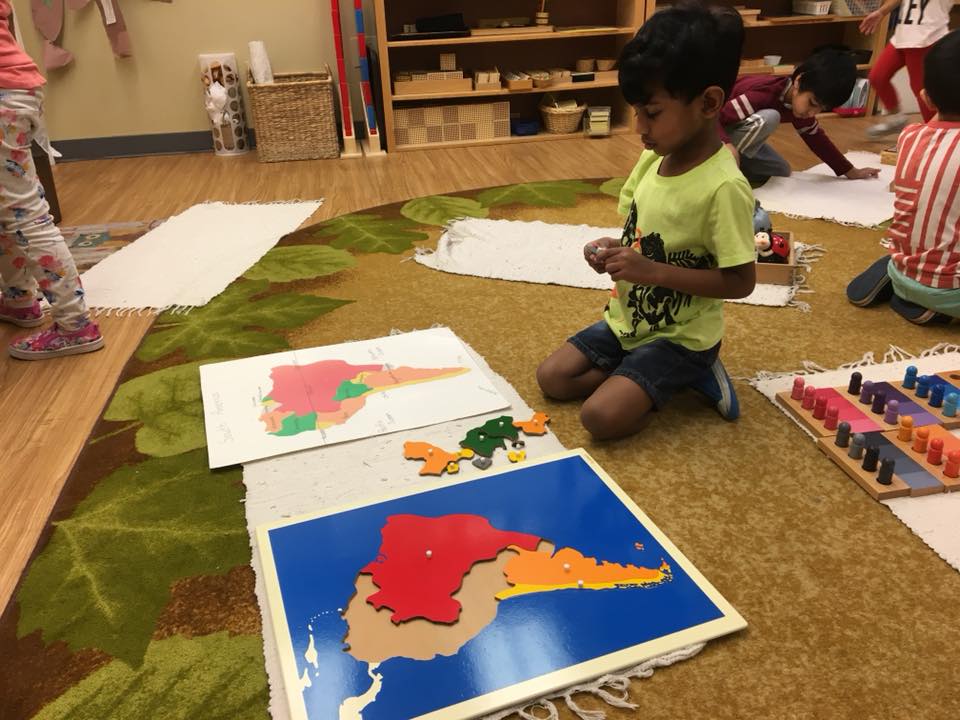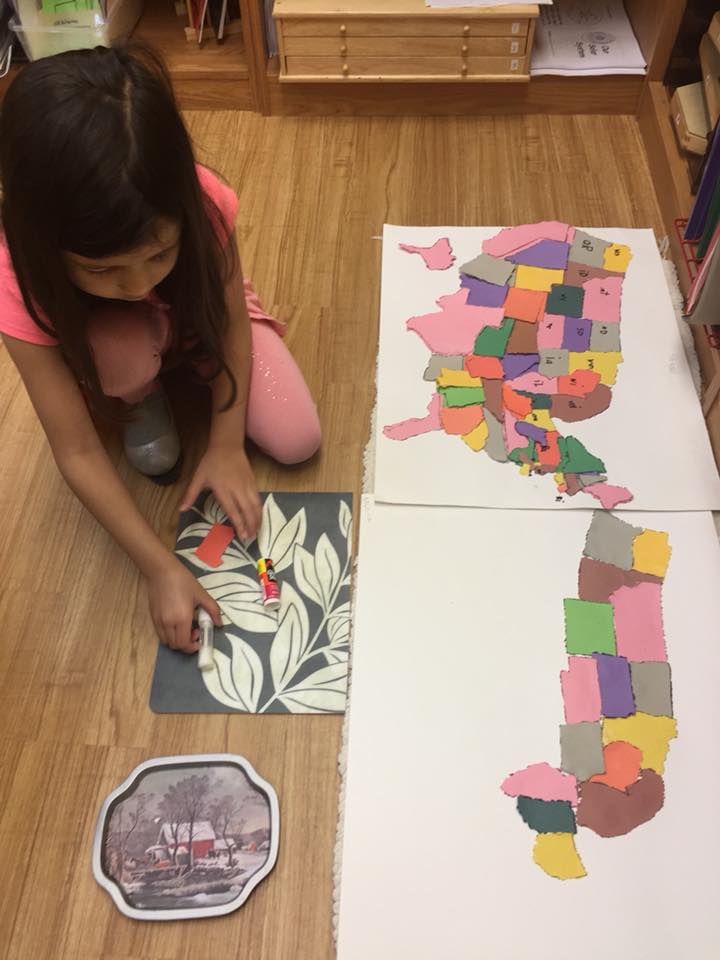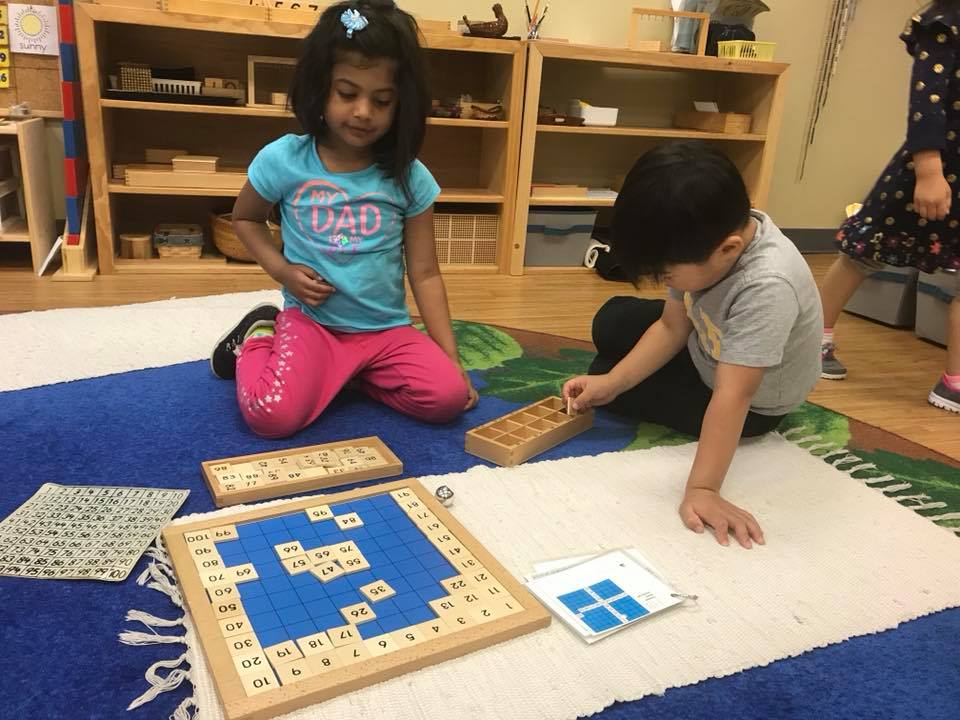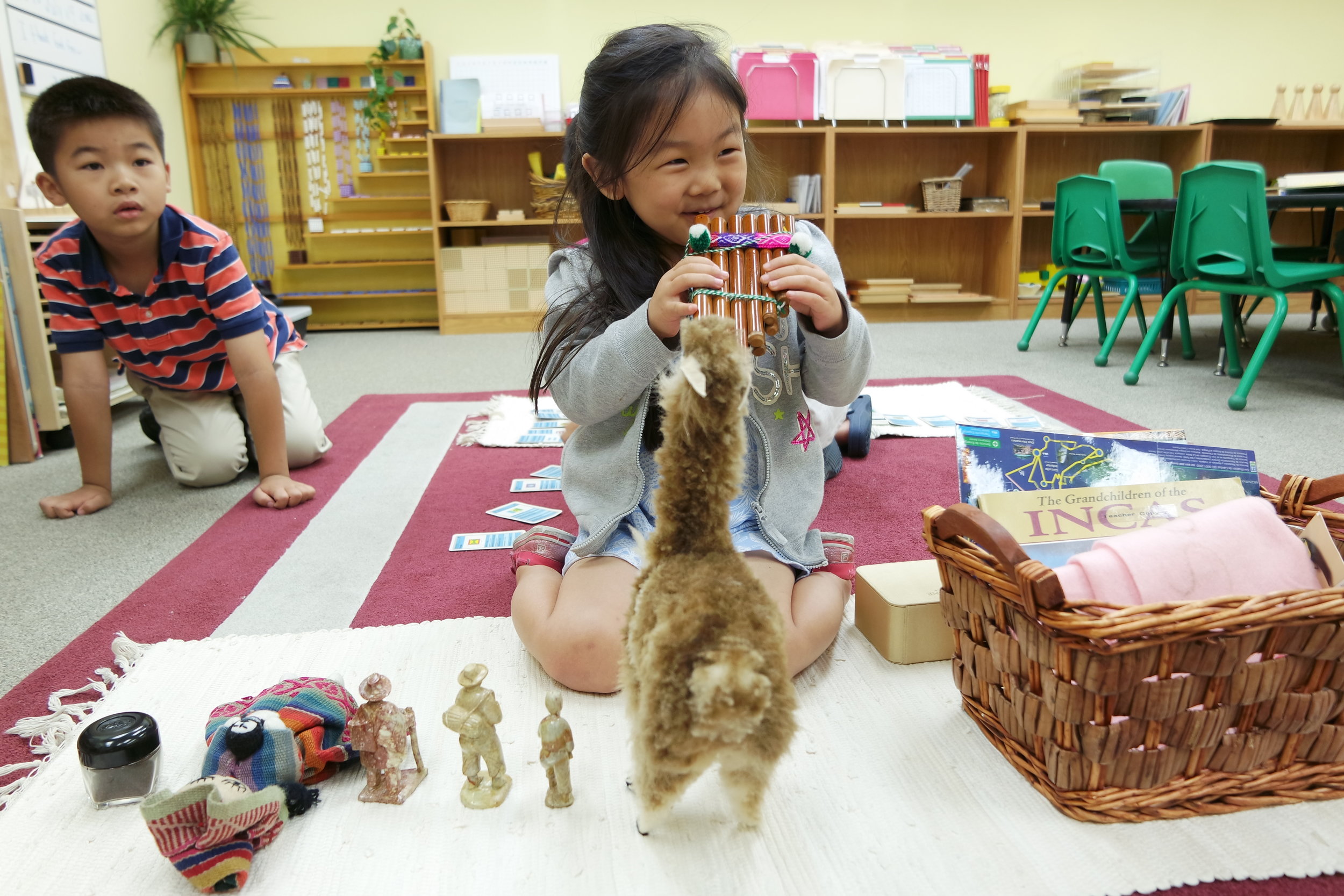
Montessori education is an educational approach developed by Italian physician and educator Maria Montessori. Montessori education is practiced in an estimated 20,000 schools worldwide, serving children from birth to eighteen years old.
We are extremely proud of our teachers. Factors that distinguish our teachers from non-Montessori schools are their extensive education, training, and dedication. In order to become Montessori-certified teachers, our teachers have spent two years or more for Montessori teacher education and training after college or graduate degrees. Also, they regularly attend national and regional Montessori conferences for continuous learning.
Montessori education is characterized by an emphasis on independence, freedom within limits, and respect for a child's natural psychological development, as well as technological advancements in society. Although a range of practices exists under the name "Montessori," the Association Montessori Internationale (AMI) and the American Montessori Society (AMS) cite these elements as essential:
Mixed-age classrooms, with classrooms for children aged 2½ or 3 to 6 years old by far the most common.
Student choice of activity from within a prescribed range of options.
Uninterrupted blocks of work time.
A Constructivism or "discovery" model, where students learn concepts by working with materials, rather than by direct instruction.
Specialized educational materials developed by Montessori and her collaborators.
Montessori
Curriculum
Practical Life
Practical life forms the core of the child's play especially when he or she learns about the relationship with other people, objects, and events. The skill learned hear aids the child development in:
Care of personal hygiene
Care of the environment
Control of movement
Social Relations
This area is the foundation for the later academic learning because it provides:
A sense of order: there is a beginning, middle, and an end to a task.
A sense of independence, "I can do it by myself."
A sense of coordination; the child brings his/her muscles under his/her or her own control.
Most important of all, an ability to concentrate, for learning can only occur when concentration is present.
Tasks are broken down into simple steps. The child learns to button, tie, zip, buckle, pour, wash tables and chairs, polish silver, brass, wash and iron clothes, sweep the floor, prepare and serve food for him/herself and for others, experience grace and show courtesy.
Sensorial
Between birth and six years, the child has a special sensitivity to sensorial impressions and their refinement. Therefore, the sensorial materials were designed by Dr. Montessori to help the child to refine his/her senses and his/her observational sensorial skills. This development of a child's physical senses enhances his/her readiness for greater intellectual work.
The child works with Montessori sensorial materials designed to develop and train his/her delicate senses of:
Touch: smooth and rough, hot and cold, heavy and light, etc.
Smell: spices, herbs, flower scents, etc.
Taste: sweet, sour, salty, bitter, etc.
Hearing: loud and soft, musical notes, etc.
Sight: many series of blocks for long and short, broad and narrow, small and large, puzzles with geometric shapes.
There are also materials for the development of the kinesthetic sense and sense of balance. Through the use of these materials the child begins to sharpen his/her awareness and increase his/her perception of the world around him/her.
Mathematics
Concepts in Montessori Math are always presented in concrete, manipulative form. Later, when the child has understood the meaning and the use of symbols by manipulating the concrete objects, more abstract forms are introduced. The materials are designed to help the child to understand the concepts of associating quantity and number symbols, beginning with numbers from 1-10 and extending to the concepts of the decimal system and place value. As the child progresses, materials are available for working with the processes of addition, multiplication, subtraction and division.
Language
Language is communication. In the beginning the child learns by absorption. No one teaches the child how to speak the language of his/her culture, with the special dialects of his/her people and his/her region. He/She absorbs it, with all the idioms and with the particular pronunciation of those around him/her. Learning consists of verbal skills, visual perception, and small muscle coordination. Therefore, we begin with games in listening, training the hand with the metal insets and puzzles, and familiarizing the child with the symbols of the alphabet through sandpaper letters.
The sensitive period for writing (composing words) generally occurs between 3 and a half and 4 and a half, and development in this area leads directly into the sensitive period for reading between age 4 and 5. A complete reading system is available to the children. Through the use of this system, children gain an understanding that separate sounds can be blended together to make words.
Even the learning of reading incorporates movement, from the tracing of sandpaper letters, to manipulating the letters of the movable alphabet to form words. These children love to read and are ready to expand their knowledge to sight vocabulary and later on into creative writing.
Science
The study of Science is done through the use of the Creation Story. The themes will be based upon the days of Creation.
For example, Day 1 God created the light so we will explore the properties of light. This will be followed by the study of the sky and water (day 2); the land, flowers, trees (day 3); the sun, moon, stars (day 4); fish/birds (day 5); animals and man (day 6).
These studies will be deepened as children are able to comprehend, grasp, and apply the material. For example for the study of man, children might learn about the various systems of the body (respiratory, circulatory, skeleton, muscles, etc).
Culture & Geography
The Cultural area of the Montessori classroom covers a variety of subjects. Geography, Science, Botany, Zoology, and History are included. Art and Music are also considered a part of the Cultural Area of the classroom. Cultural studies is one of the subjects that distinguishes Montessori education from other early childhood education.
The Cultural area of the Montessori classroom covers a variety of subjects. Geography, Science, Botany, Zoology, and History are included. Art and Music are also considered a part of the Cultural Area of the classroom. Cultural studies is one of the subjects that distinguishes Montessori education from other early childhood education.
The Bible
It is in the Bible area that children can revisit the wonderful stories of God. Children can use these materials to remember and re-enact the amazing way that God created the world, how Noah built the ark, how Abraham and Sarah believed and trusted God. How David defeated Goliath, and how Jesus came to earth to save us.
They can remember these stories and memorize the Scriptures. The children can then meditate upon them and experience the love of God. They are developing an intimate relationship with Jesus.
Our Mission
& Philosophy
For God's precious children, Discovery Christian Montessori offers quality education
through the true Montessori method in the Christian value of love.
The early childhood years are referred to as the period of the "absorbent mind."
Therefore, it is essential to help children develop a Godly character and the habits, skills, and attitudes that will lead to a lifetime of living and learning. Children have a deep sense of wonder, and it is here that we begin our studies with them in the areas of language, science, mathematics, geography, music, art, and everyday living. We believe in educating the whole child by meeting the cognitive development of each child.
We provide a program that meets each child's individual social, emotional, physical, intellectual, and spiritual needs.
Proverbs 22:6
Train a child in the way he should go, and when he is old he will not turn from it.
Our Goal
Our goal is to serve God by helping children to develop a relationship with Him, to sense His presence, and to understand and enjoy God's closeness.
To meet this goal we will work together with families to provide the best possible environment for our children and to provide a loving, non-competitive, nurturing, stimulating, and developmentally appropriate program, which will meet the needs of all the children.
By integrating Christian truths throughout the curriculum children can grow in love and grace, realize their God-given gifts and fulfill God's plan for their lives.
Jeremiah 29:11
For I know the plans I have for you, declares the Lord, plans to prosper you and not to harm you, plans to give you hope and a future.


